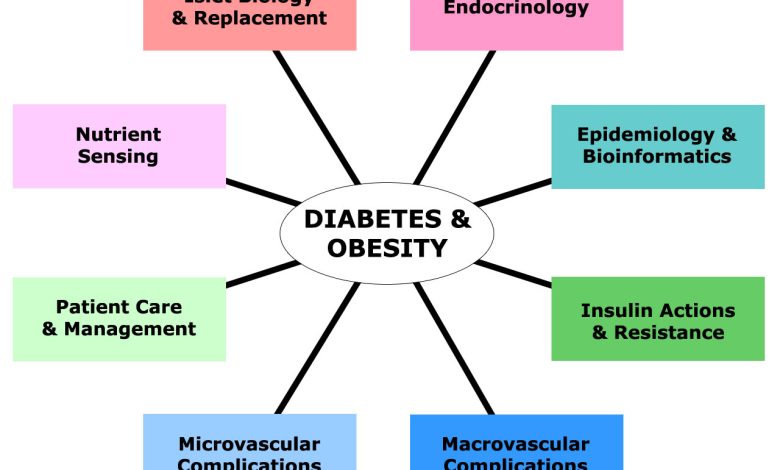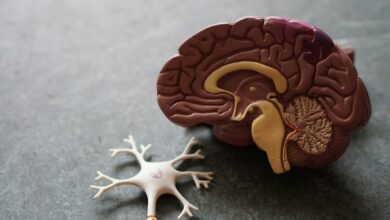Diabetes Mellitus-Symptoms, Causes, and Treatment

Diabetes Mellitus is a disease caused by an increased level of glucose in the blood.
There are 2 major types of diabetes, i.e., Type 1 and Type 2.
Both are chronic diseases that affect the regulation of blood glucose and sugar by the body. Glucose is the fuel that gives energy to the cells of your body. But you need a key to get into your cells.
Insulin Is the Key
Type 1 diabetes is caused by a lack of insulin production. It might seem like there is no way to reverse it.
Individuals with type 2 primarily do not respond well to insulin. You might think the key is broken.
Both types of diabetes can cause chronic hyperglycemia. This increases the risk of diabetic complications.
Symptoms
The major symptoms of diabetes patients are given below:
1-Frequently Urinating
In hyperglycemic conditions, the kidneys try to filter out excess sugar from the bloodstream. This can make an individual urinate more often, especially at night.
2-Increased Thirst
Too much blood sugar puts a lot of stress on the kidneys that process the sugar. If the kidneys get damaged, much of that glucose is excreted by the body through the urine.
This process also removes valuable hydration fluid from your body. Often causing urination and dehydration in people with diabetes.
3-Always Feel Hungry
Constant hunger or thirst can be an early sign of diabetes. Diabetic individuals often do not get enough energy from the food they eat. People with diabetes have insufficient glucose transfer from the bloodstream to the cells of their body. Due to this, Individuals with type 2 diabetes often feel hungry, even if they have eaten recently. It is wise to consult an Endocrinologist if you feel hungry more often than usual.
4-Feeling of Tiredness
Diabetes can make you feel very tired and fatigued, which will affect your energy levels. The body lacks sugar flowing to its cells, so it feels lousy.
5-Blurred Vision
There is a possibility that too much blood sugar can damage the small blood vessels in the eye and result in vision problems. Whether it is one or two eyes, people may experience blurred vision that comes and goes at will.
6-Slow Healing of Cuts and Wounds
Increased levels of sugar in the blood can impair nerves and blood vessels in the body and interfere with blood circulation. This results in minor injuries and cuts being unable to heal for weeks or months.
7-Aching, Numbness, and Pain in the Hands and Feet
Nerves and blood circulation can be damaged by high blood sugar. The limbs of people with diabetes can be numb and painful.
8- Dark Patches on the Skin
A person with diabetes may also get black spots on the neck, armpits, or groin folds as a symptom of the illness. If you touch the black spots, you may find that they feel velvety.
9-Yeast Infections and Itching
Infections can be caused by elevated blood sugar levels and excess sugar in the urine. Infections caused by yeast are common in moist, warm skin areas, such as the mouth, genitals, and armpits.
In addition to itching, the area may also be swollen, red, and painful.
Causes
Causes of Type 1 Diabetes
In type 1 diabetes, the immune system confuses the body’s healthy cells with foreign invaders. The immune system attacks and destroys insulin-producing pancreatic’s beta cells.
Causes of Type 2 Diabetes
Individuals with type 2 are resistant to insulin. The body continues to produce insulin, but it cannot be used effectively. Various lifestyle factors can contribute, such as being inactive and being overweight. Other genetic and environmental factors can also play a role.
Treatment
For type 1 Diabetes
Some people inject into soft tissues such as the abdomen. Others use insulin pumps. An insulin pump delivers a certain amount of insulin to the body through a small tube.
For Type 2 Diabetes
If your lifestyle changes aren’t enough, your doctor may prescribe medications that help your body use insulin more effectively.
You can consult an Endocrinologist to know which treatment you need.
New Advances in Diabetes Treatment
Recent advancements in diabetes treatment offer hope for those living with this chronic condition. One promising development is the use of continuous glucose monitoring (CGM) systems, which provide real-time data on blood sugar levels. These devices allow individuals with diabetes to track their glucose levels more closely and make informed decisions about their diet, exercise, and medication.
Preventive Measures
However, the following lifestyle changes can reduce your risk of developing type 2 diabetes.
Maintain a moderate weight
Raise your activity level
Maintain a balanced diet and decrease your intake of sugar-rich and over-processed foods.
Even if you can’t prevent the disease yourself, close monitoring can help restore blood sugar levels. It also prevents serious complications.
Who to consult?
If you or your close one has diabetes. If left untreated, it may lead to other complications. Or, if you notice any of the symptoms mentioned above, you must consult one of the best Endocrinologists in your area.
You can visit Marham to book your appointment with the best Endocrinologist in your area.
Frequently Asked Questions (FAQs)
1- How fast does diabetes develop?
Symptoms of type 1 diabetes begin quickly within a few weeks. Symptoms of type 2 diabetes often progress slowly over the years and are so mild that they may go unnoticed.
2- Can anxiety and stress cause diabetes?
Stressed people may have high levels of certain hormones that can affect the way insulin works. High levels of stress can also cause unhealthy lifestyles, increasing the risk of developing diabetes.
3- What color is diabetic urine?
Patients with diabetes have large amounts of dilute (clear) urine because they cannot control the amount of water in their urine.
Read More: What Are Different Types Of Dementia-Related Disorders?



